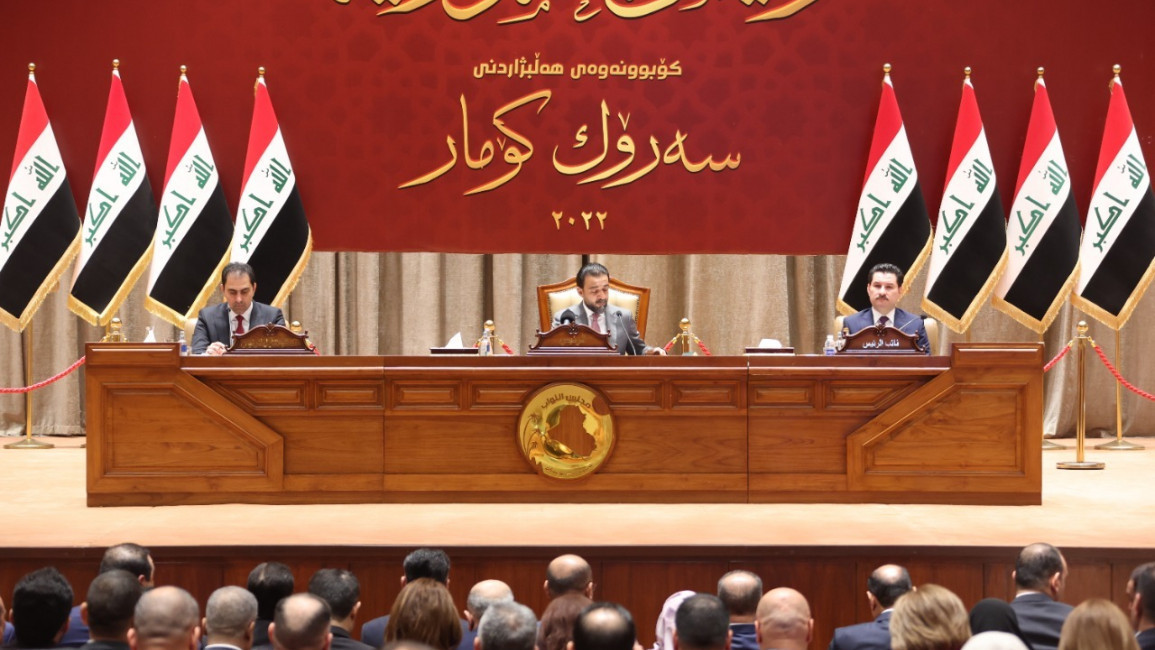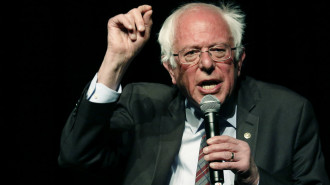Iraqi parliament to debate controversial bills on PMF retirement, general amnesty amid political tensions
The Iraqi Parliament has unveiled its agenda for Wednesday's session, setting the stage for intense discussions over several significant bills that will impact the country's legislative landscape, including the Public Service and Retirement Law for the Popular Mobilisation Forces (PMF) and amending the General Amnesty Law.
On Monday, the parliament outlined the agenda for the session, which include voting on the first and twenty-second amendments to the Real Estate Registration Law No. (25) of 1960. Additionally, the session will feature the first reading of the draft law on service and retirement for the "Mujahideen" of the Popular Mobilisation Forces, a proposal to amend the Personal Status Law No. 188 of 1959, a draft law on arbitration, and the second amendment to the General Amnesty Law No. (27) of 2016.
Furthermore, the report and discussion (second reading) of the proposed second amendment to the Law for the Political Prisoners Foundation No. (4) of 2006 as amended will be addressed.
The inclusion of these controversial bills has set off significant debate among Iraqi activists and politicians.
Amending the General Amnesty Law has been a key demand and a crucial condition for Sunni political forces to engage in forming the current government under Prime Minister Mohammed Shia Al-Sudani. Having secured Sunni political backing to establish his government, Al-Sudani committed in his government program to amend the General Amnesty Law and present it to parliament as part of a political agreement.
Amending the General Amnesty Law aims to release thousands of inmates from Iraqi prisons, who were arrested under Article 4 of the Anti-Terrorism Law, often using personal vendettas, fabricated charges, and secret informant reports. The penalty of Article 4 is execution.
Recently, the Iraqi Justice Ministry refuted allegations that it is conducting secret executions for inmates charged under the Anti-Terrorism Law.
It seems that Shia political forces, who have a majority in the parliament, proposed the new PMF law as a trade-off to Sunni forces, seeking their support for the General Amnesty Law, which has previously faced objections and delayed its enactment.
Mohammed Al-Halbousi, the leader of the National Progress Party and the ousted parliament speaker, stated that he found no clause in the new PMF law allowing the current PMF head, Falih Al-Fayyadh, to use the institution for partisan purposes.
In a tweet on platform X, Al-Halbousi mentioned that he did not find any binding text undermining the independence of security agencies, as outlined in the constitution. He further asserted that the law does not compel the PMF's head to act as a political party leader, using the institution and its forces according to his political vision and agenda.
Al-Halbousi highlighted that there was no explicit text permitting Al-Fayyadh to utilise the PMF for partisan interests, deviating from the constitutional objectives of ensuring security and defending the country and its people.
Additionally, Al-Halbousi noted the absence of any clause allowing the threat of dismissal or expulsion of PMF and tribal fighters to coerce them and their families into voting for a specific candidate from a particular bloc or party. He also criticised Article 32 of the bill, which permits the PMF head to mandatorily retire a member if deemed "incompetent." He questioned whether this provision would be used for "unacceptable political and electoral gains".
The Iraqi parliament failed several times to elect a new speaker after Iraq's top court on 14 November ousted Mohammed al-Halbusi following his conviction of forgery of official records related to the resignation letter of one of the MPs.
Meanwhile, a draft proposal to amend the Personal Status Law No. 188 of 1959, posted on the X platform, introduces provisions allowing Shia and Sunni sects to apply their respective personal status laws to marriage and family matters. It also sets a framework for resolving disputes in the Personal Status Court based on the chosen religious authority's laws.
Furthermore, the law requires coordination between the Shia and Sunni Endowments and the Council of Representatives to develop a "Personal Status Code" within six months. This code would outline separate regulations for Shia and Sunni personal status matters, relying on scholars' prevailing opinions when specific provisions are absent.
As the session approaches, these legislative proposals are expected to generate significant debate among Iraq's political factions, reflecting the ongoing complexities and power dynamics within the country's political landscape.




 Follow the Middle East's top stories in English at The New Arab on Google News
Follow the Middle East's top stories in English at The New Arab on Google News
![The US vetoed a UN Security Council (UNSC) resolution demanding a ceasefire in Gaza [Getty]](/sites/default/files/styles/image_330x185/public/2185152251.jpeg?h=7ef8ac04&itok=RpLSj2pu)

![An attack by paramilitary forces in Sudan has killed at least 40 people [Getty]](/sites/default/files/styles/image_330x185/public/2182364341.jpeg?h=a5f2f23a&itok=r8Fkhxdj)